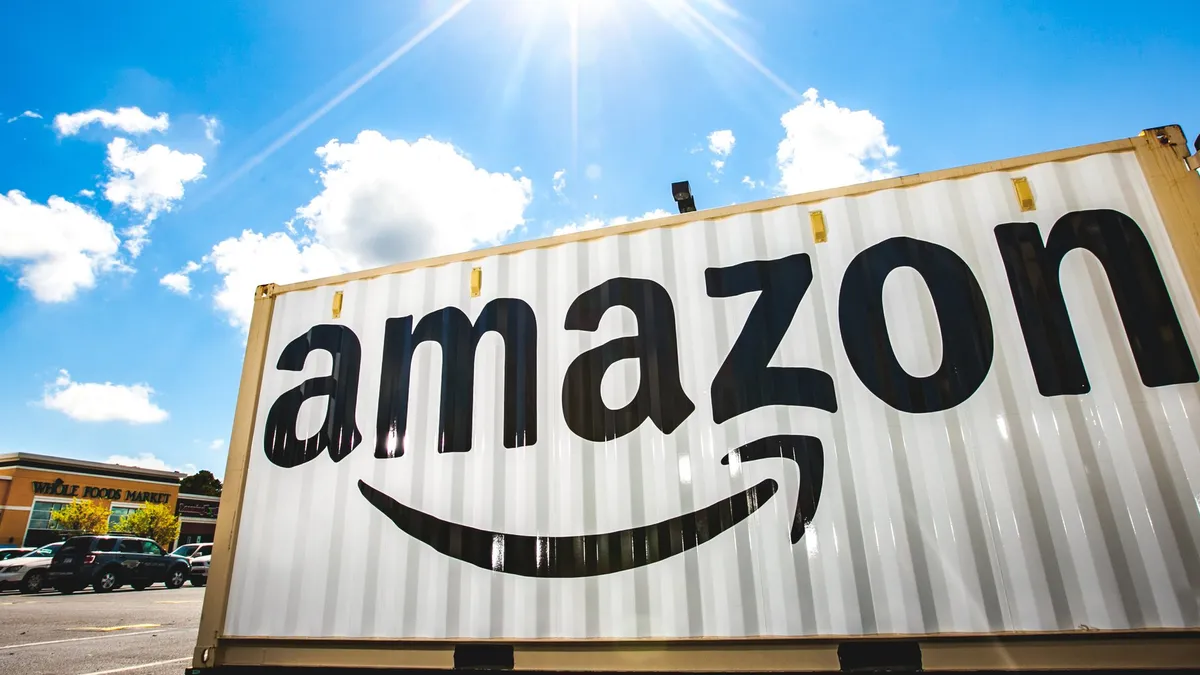Dive Brief:
- Amazon can face liability and negligence litigation over a malfunctioning dog leash sold on its third-party Marketplace platform, according to a split ruling last week by a federal appeals court. Amazon did not immediately reply to Retail Dive's request for comment.
- The dog leash, which blinded the plaintiff in one eye when it broke and recoiled, was sold by third-party vendor called "The Furry Gang." Neither the plaintiff nor Amazon could locate the vendor after the injury and it has not had an active account on Amazon's website since 2016.
- According to the ruling, Amazon had argued that it was not a seller for the purpose of Pennsylvania liability laws because it "merely provides an online marketplace." But the court disagreed, noting Amazon's deep involvement in regulating sales on its Marketplace and interacting with customers.
Dive Insight:
The court's ruling overturned that of a lower court and, according to Reuters, appeared to be the first to argue that Amazon can be held liable for products sold by third-party vendors over its Marketplace. As Amazon's Marketplace grows ever larger and makes up a larger share of the e-commerce giant's revenue, the ruling could open Amazon up to a flood of lawsuits. As a dissenting judge wrote, liability for Marketplace items could force Amazon into "a fundamentally new business model."
The ruling judges looked closely both at Amazon's heavy hand in managing its Marketplace and its light touch in vetting the sellers on it. The ruling states that Amazon "governs every step of the sales process." For example, the judges noted that Amazon requires product, inventory and shipping information from vendors; it formats the product listings on Amazon.com; it provides a host of services to vendors, optional and required, such as payment processing and logistics; and at its sole discretion, Amazon can redesign, modify and remove product rulings, as well as sellers.
Additionally, Amazon requires that vendors not price lower in any other medium than they do on its website and not to provide better customer service outside of its platform. And, the judges also pointed out, Amazon mediates any interactions between vendors and customers, to the extent that there are any.
At the same time, as Amazon's vice president of marketing business acknowledged in the case, Amazon "generally takes no precautions" to make sure vendors are in good standing under local laws and has no vetting process to ensure "vendors were amenable to legal process." In the case of the malfunctioning dog leash, that left Amazon as the only party left in the marketing chain "available to the injured plaintiff for redress," the ruling judges wrote.
The ruling circuit judges argued that Amazon is "uniquely positioned to receive reports of defective products," which could get those products removed. Amazon could also, they wrote, price liability risks into its seller fees, while the potential for litigation could incentivize Amazon to reduce dangerous products from its website
The case points to tension as Amazon's marketplace grows. There are millions of sellers on its platform, and policing every action of every one of them may well be impossible. And, as Amazon notes in its 10-K, "The law relating to the liability of online service providers is currently unsettled."














